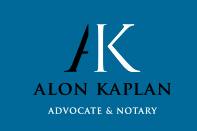
Private trusts offer an effective strategy for business succession in Israel. They facilitate seamless asset transfer, helping avoid legal and familial disputes under the robust Trust Law framework. Trusts enable structured management of family business assets, align control with beneficiary readiness, and guarantee privacy. Compliance with Israeli Trust Law is essential in preventing asset redirection, and understanding tax implications enhances tax efficiency. Delving into trust structures can further illuminate effective succession planning methods.
Key Takeaways
- Private trusts offer structured business asset management, minimizing potential succession disputes under Israeli law.
- Trusts ensure phased inheritance, aligning management control with beneficiary readiness to avoid conflicts.
- Israeli Trust Law compliance is essential in private trust structures to prevent asset redirection or legal issues.
- Amendment 147 permits appointing Israeli resident trustees without additional tax implications, facilitating smoother succession.
- Trusts can be tailored for privacy and beneficiary needs, promoting seamless business transition across generations.
The Role of Trusts in Israeli Wealth Management
While the concept of trusts might seem complex at first, they play an increasingly vital role in Israeli wealth management, particularly for families looking to secure seamless succession planning.
Trust management is becoming imperative as first and second-generation wealth owners seek to address multi-generational wealth transfer issues. Trusts offer a structured approach to wealth preservation, allowing orderly transfer of both business and personal assets under Israel’s Trust Law. Israel’s special tax environment is a major draw for high net worth individuals, making it an attractive jurisdiction for establishing trusts that facilitate efficient wealth transfer. Trust Estate Planning in Israel provides comprehensive guidance on the modern-day use of trusts within the country, offering insights into their legislative and cultural implications.
The rising preference for foreign common law trusts highlights the demand for robust asset protection. Given Israel’s relatively young wealthy population, the focus on succession planning is now more significant, and trusts provide viable solutions.
Foreign common law trusts are increasingly favored for robust asset protection in Israel’s wealth management landscape.
They guarantee wealth is preserved across generations, minimizing disputes and enhancing family legacy continuity.
Trust Law Framework and Regulations in Israel
Under Israeli law, trust types are categorized by the residency of settlors and beneficiaries, such as Israeli resident settlor trusts with Israeli beneficiaries. Trust administration requires that trustees, who hold legal title, act strictly according to the trust deed to manage assets for the beneficiaries’ benefit. They must adhere to fiduciary duties, ensuring beneficiaries’ interests are prioritized. Timely reporting, including annual tax returns, is mandatory through the Israeli Tax Authority‘s online system. Trustees must maintain thorough records, which supports transparency and regulatory compliance. Professional trustees often provide impartial decision-making and risk management, ensuring seamless administration across generations. Alon Kaplan is recognized as a leading expert in trust law in Israel, contributing to the development and understanding of the legal framework. A strong understanding of trustee inheritance regulations is essential for effective asset management and distribution, ensuring compliance with legal obligations and protecting beneficiaries’ interests.
Navigating Taxation Challenges for Israeli Trusts
Steering taxation challenges for Israeli trusts requires a thorough understanding of the recent regulatory changes and their implications. You must focus on maintaining tax compliance and accurate income reporting. Starting from the 2025 tax year, trustees need to file annual reports detailing all controlling individuals, including settlors, trustees, and beneficiaries. This is essential as it aligns with broader tax transparency reforms. Legislative changes reflect Israel’s commitment to tightening tax regulations and aligning with global standards. The concept of trusts in Israel is a legal relationship that involves a settlor and a trustee, which is crucial for estate planning. In 2026, Israeli trustees must report identities and residences of controlling individuals to the tax authorities, highlighting the importance of timely compliance. The removal of exemptions for new residents demands full foreign income disclosure. These changes, along with the freeze on income tax bracket indexing, require careful management of trust taxation, particularly with Israeli resident beneficiaries and foreign income considerations.
Strategic Use of Trusts for Business Succession
In the domain of business succession, strategically utilizing private trusts in Israel offers a structured approach to managing and transferring family business assets across generations. By establishing a trust, you guarantee that trustee responsibilities are clearly defined, allowing for centralized control and management of assets. This approach minimizes potential disputes and provides a framework for orderly succession. Beneficiary considerations are integral, as trusts can be tailored to meet their needs, such as protecting minors or addressing complexities in family dynamics. Trusts offer privacy and confidentiality, unlike direct inheritance processes, and can incorporate phased inheritance strategies. This guarantees that business control aligns with beneficiary maturity or readiness, promoting smooth changes and safeguarding the business’s future stability and growth. According to recent industry developments, ABN AMRO has reported a sharp fall in expenses, highlighting the impact of effective financial management strategies. The use of trusts in Israel is rooted in historical and cultural contexts, offering varied options for families seeking to preserve wealth and ensure continuity, as detailed in Alon Kaplan’s comprehensive guide on trust estate planning.
Designing Trust Structures for Optimal Asset Transfer
When designing trust structures for ideal asset transfer in Israel, it’s important to navigate the complex legal and regulatory landscape. Trust structure design requires careful planning to align with Israeli Trust Law, which voids trusts upon the settlor’s death, redirecting assets to the estate. Establishing a private trust company involves registration and adherence to governance standards, which resemble corporate governance structures. Utilizing Amendment 147, you can appoint Israeli residents as trustees or protectors without adverse tax effects, allowing control while retaining benefits. Consideration of tax implications, such as Purchase Tax and Capital Gains Tax on real estate transfers, is significant. A strong network of legal and financial experts can greatly assist in ensuring compliance and optimizing asset transfer strategies. Since there are no gift, estate, or generation-skipping taxes, you can optimize asset transfer strategies within families by balancing tax planning with compliance and legal validity.
Mitigating Succession Disputes With Trusts
While succession disputes can be complex and emotionally charged, trusts offer a strategic approach to mitigate these conflicts. By establishing a trust, you can guarantee asset protection and reduce potential trust conflicts. Israeli Inheritance Law provides clear jurisdiction, minimizing legal contestation. Trust assets, distinct from family property, empower you to make dispositions without automatic family interference. Courts uphold discretionary and irrevocable trusts, securing your wishes and reducing litigation risks. The dispute involving the Perry family illustrates how claims regarding trust-connected wealth division can arise, emphasizing the importance of clear asset disposition. Discretionary trusts allow trustees to manage distributions, preventing entitlement-driven conflicts. Irrevocable trusts lock in decisions, curtailing postmortem challenges. Trusts also protect privacy by avoiding court disputes, hence preserving dignity. Centralized trust management prevents ownership fragmentation, guaranteeing orderly succession and lessening internal disputes among heirs. Israel’s strong economy, particularly in the IT sectors, provides a favorable environment for wealth planning and management, making trusts an attractive option for business succession.
Cross-Border Considerations for Trust Management
Establishing trusts to mitigate succession disputes also involves managing complex cross-border considerations. You’ll need to guarantee cross-border compliance to avoid complications.
Here are some key points to keep in mind:
- Tax Efficiency: Utilize the “Israeli Settlor Foreign Beneficiary Trust” to benefit non-Israeli beneficiaries, reducing automatic Israeli taxation. Israel’s participation in international tax treaties helps avoid double taxation.
- Regulatory Compliance: Adhere to the OECD CRS and FATCA standards for financial information exchange. Israeli trustees must manage international fiduciary duties while complying with both Israeli and foreign reporting requirements. It’s advisable to consult with experts like Alon Kaplan to ensure thorough understanding and compliance with these complex regulations.
- Document Recognition: Leverage the Hague Apostille Convention for document recognition, guaranteeing cross-border trust documents are legally valid without additional formalities. The absence of inheritance tax since 1981 in Israel reduces the perceived need for trusts, impacting how they are structured in international contexts.
Legal Protections and Beneficiary Rights in Trusts
Though trusts can be complex, Israeli law offers specific legal protections and rights for beneficiaries, guaranteeing equitable treatment in trust management.
As a beneficiary, you have clearly defined rights to distributions based on the trust’s terms, which safeguard your interests. Trustees possess fiduciary duties, prioritizing your needs by managing trust assets responsibly. In Israel, trusts are governed by the Trust Law 5739-1979, which outlines the powers, duties, rights, and conduct of trustees, ensuring that they adhere to their obligations.
They’re required to act in good faith, avoiding undue favoritism among beneficiaries, which promotes fairness in distributions, especially among children or descendants.
Trust protections guarantee that trustees comply with tax laws, impacting your beneficiary rights and taxation obligations.
Additionally, beneficial tax exemptions might apply, particularly for new Israeli immigrants and returning residents, further enhancing your rights and protections as a beneficiary under Israeli law.
Frequently Asked Questions
How Do Trusts Impact Family Dynamics During Succession Planning?
Trusts play a significant role in shaping family dynamics during succession planning. They enhance trust communication by providing clear guidelines and expectations, which helps minimize conflicts.
By defining family roles, trusts guarantee that management responsibilities align with members’ skills and experience. This structured approach supports smooth shifts, allowing younger generations to gain necessary business acumen gradually.
Properly implemented, trusts maintain family harmony, balancing ownership with experienced decision-making, thereby securing the business’s future.
What Are Common Pitfalls in Establishing Private Trusts in Israel?
When establishing private trusts in Israel, you’re likely to encounter common pitfalls like trust registration issues and complex tax implications.
The absence of a thorough domestic trust law results in legal uncertainty, complicating enforcement and recognition.
Tax obligations can be unpredictable, depending on the residency of grantors, beneficiaries, and asset locations.
Additionally, Israeli probate procedures are mandatory for foreign trusts affecting local assets, increasing administrative complexity for international clients.
How Do Trusts Handle International Assets Within Israeli Succession?
You must navigate international trust regulations carefully when handling international assets within Israeli succession.
Trusts with Israeli beneficiaries face full Israeli taxation on global income, complicating cross-border asset management.
Israeli trusts automatically dissolve upon the settlor’s death, reverting assets to the estate, unlike foreign trusts that maintain control.
Structuring your trust to align with international laws guarantees continuity and mitigates disputes, while compliance with Israeli tax laws is essential to avoid penalties.
Can Trusts Be Challenged in Israeli Courts?
When it comes to trusts, you can’t sweep things under the rug.
In Israeli courts, challenges can arise concerning trust validity. Legal precedents guide these challenges, often scrutinizing the legality of trust creation and trustee actions.
Courts cautiously intervene, focusing on breaches of fiduciary duty or public policy violations. If misconduct or legal terms are violated, the court may dissolve the trust, ensuring beneficiaries are protected and legal standards upheld.
What Role Do Cultural Factors Play in Israeli Trust Usage?
Cultural perceptions heavily influence trust acceptance in Israel.
Traditional reliance on direct inheritance reflects longstanding cultural norms, with older generations preferring straightforward wealth transfer.
Younger, self-made individuals favor trusts for flexibility, especially in business succession.
Religious beliefs and community norms also impact trust usage, as some may view trusts as diverging from traditional inheritance paths.
Consequently, cultural factors greatly shape how and when Israelis choose to implement trust structures.
Conclusion
In maneuvering the complex landscape of Israeli business succession, trusts serve as a reliable vessel, guiding you through turbulent waters. By strategically crafting trust structures, you guarantee smooth asset transfer and mitigate potential disputes. Adhering to Israel’s trust law framework, you can manage cross-border considerations while safeguarding beneficiary rights. This approach mirrors the steady hand of a captain, steering through legal and tax challenges, ensuring your legacy remains intact and unchallenged for future generations.

